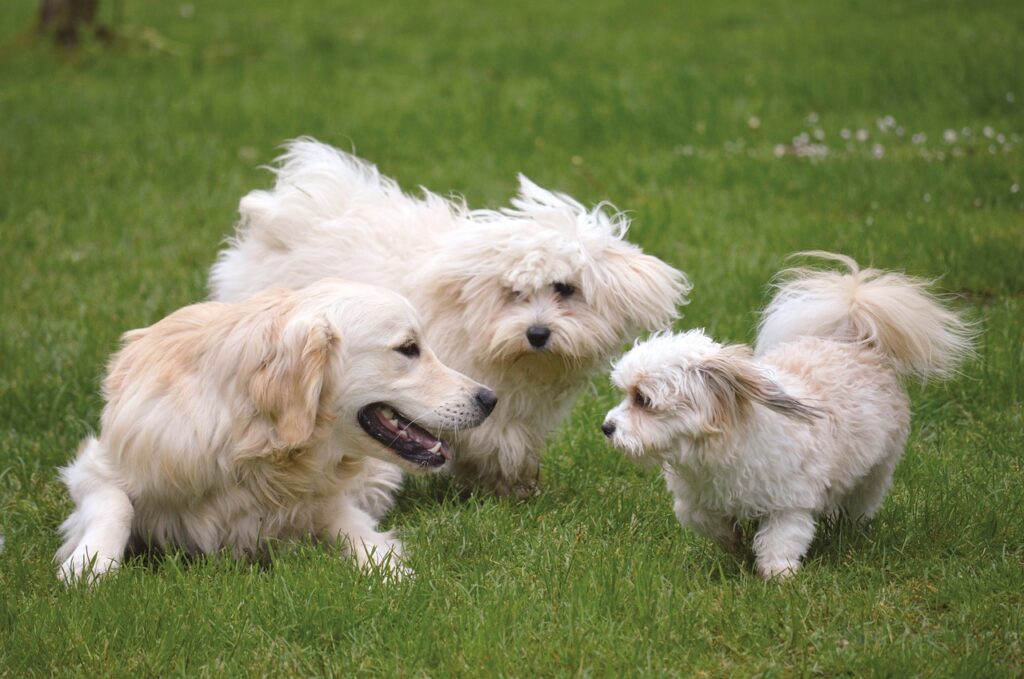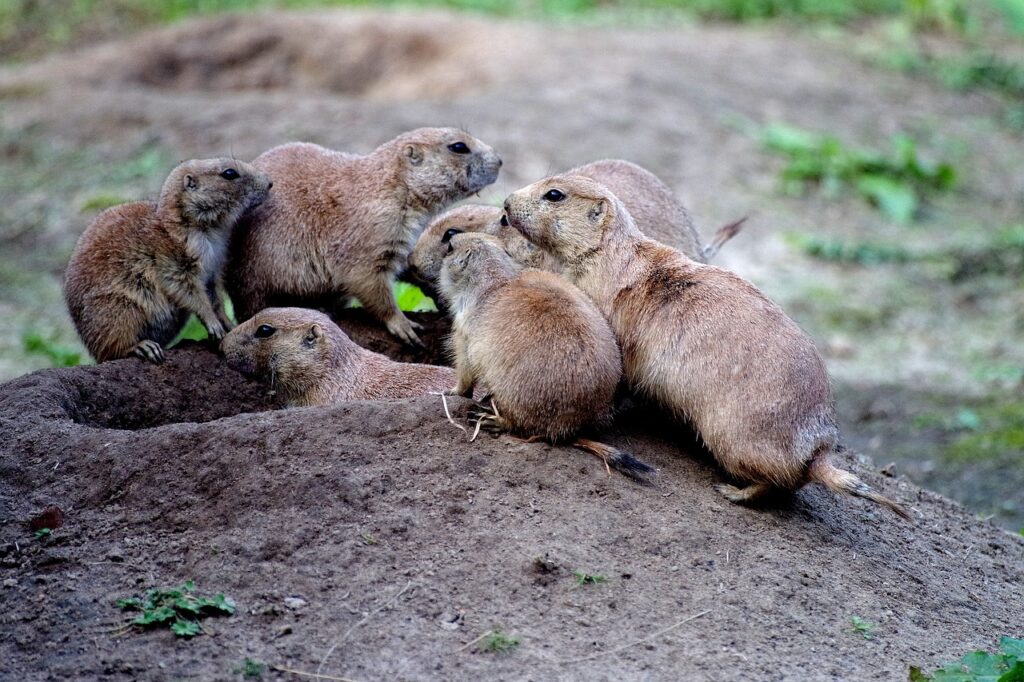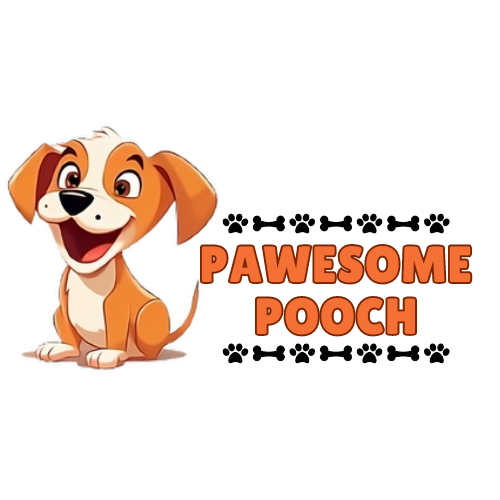
So, you’ve got a furry friend in your life and you want them to be able to enjoy the company of other dogs, but you’re not quite sure how to go about it? Don’t worry, because we’ve got you covered! In this article, we’ll explore some effective strategies for socializing your dog with other four-legged pals. Whether you’re dealing with a pup who’s a bit shy or one who just needs a little extra training, we’ve got tips and tricks to help your canine companion embrace their social side. Let’s get started on this paw-some journey!
Understanding the Importance of Socializing Dogs
Socializing dogs plays a crucial role in their overall well-being and development. It helps them become more confident, friendly, and well-behaved members of the canine community. By exposing dogs to various social situations and interactions with other dogs, they learn appropriate behavior, communication skills, and how to navigate different environments. In this article, we will explore the why, when, and how of socializing dogs and delve into the benefits of early socialization.
Why is socializing important for dogs?
Socializing is essential for dogs as it helps in developing their social skills and ensuring they can handle different interactions with ease. Dogs are naturally social animals, and when they are properly socialized, they tend to be more relaxed, less fearful, and able to cope with new experiences. It also enhances their ability to communicate effectively, reducing the likelihood of aggression or fear-based reactions. Additionally, socialized dogs are more likely to be welcomed in various environments, making outings and interactions with other dogs and people enjoyable for both the dog and their owner.
When should you start socializing your dog?
The socialization process should start as early as possible, ideally during puppyhood. Puppies have a critical socialization period, typically between 3 and 14 weeks of age, where they are most receptive to learning and adapting to new experiences. This is the perfect time to introduce them to a variety of people, animals, sounds, and environments. However, if you have an older dog or rescued a dog that has missed out on early socialization, it’s never too late to start. With patience and proper guidance, dogs of any age can benefit from socialization.
Benefits of early socialization
Early socialization sets the foundation for a well-adjusted dog and has numerous benefits. It helps prevent behavior problems, such as fear aggression, separation anxiety, and excessive barking, by teaching dogs how to cope with different situations. It also promotes better impulse control, making them less likely to engage in destructive behaviors. Furthermore, well-socialized dogs are less prone to anxiety or reactivity when encountering new people, dogs, or environments. Overall, early socialization enhances the emotional and mental well-being of dogs, leading to a happier and more fulfilling life for both the dog and their owner.
Preparing Your Dog for Socialization
Before engaging in socialization activities, it is important to ensure that your dog is ready and well-prepared. This involves attending to their basic obedience training, considering their health and vaccination status, and assessing their temperament.
Basic obedience training
Prior to introducing your dog to socialization opportunities, it is essential to establish a foundation of basic obedience training. Teaching your dog fundamental commands like sit, stay, come, and leave it will provide a solid framework for their interactions with other dogs and people. Obedience training helps create boundaries and cultivates good manners, making social interactions smoother and more enjoyable for all parties involved.
Health and vaccination status
Before exposing your dog to other dogs, it is crucial to ensure they are in good health and up-to-date with vaccinations. This helps minimize the risk of contagious diseases and ensures the safety of both your dog and other dogs they may come into contact with. Regular vet check-ups and preventive healthcare measures, such as vaccinations, deworming, and flea control, should be part of your dog’s routine to keep them healthy and ready for socialization.
Assessing your dog’s temperament
Knowing your dog’s temperament is key to successful socialization. Understanding their tendencies towards fear, aggression, or shyness can help you tailor the socialization process to their specific needs. If your dog shows signs of fear or aggression, it may be necessary to seek professional help from a certified dog trainer or behaviorist to address these issues before proceeding with socialization activities. Being aware of your dog’s temperament and limitations will enable you to create a more positive and comfortable socialization experience.

Gradual Exposure to Other Dogs
Once you have prepared your dog for socialization, it’s time to gradually introduce them to other dogs. This should be done in controlled environments, starting with walks in the neighborhood and progressing to supervised interactions with friendly dogs.
Start with controlled environments
To ensure a positive and safe socialization experience, begin in controlled environments such as your own backyard or a quiet park with minimal distractions. This allows your dog to gradually acclimate to new surroundings and reduces the chances of overwhelming or stressful situations. Controlling the environment also allows you to manage the interactions between your dog and other dogs, ensuring a positive and comfortable experience for everyone involved.
Walks in the neighborhood
Taking your dog for regular walks in the neighborhood provides an opportunity for them to encounter other dogs in a natural and controlled setting. Use a sturdy leash and maintain a safe distance from other dogs initially, allowing your dog to observe and get comfortable with the presence of other dogs without direct contact. As your dog becomes more familiar and relaxed, you can gradually decrease the distance and allow them to interact under supervision, always prioritizing safety and positive reinforcement.
Introduction to friendly dogs
When your dog is ready for more direct interactions, arrange playdates or meetings with well-socialized and friendly dogs. It is important to choose appropriate playmates that are of similar size, energy level, and temperament to your dog. This ensures compatibility and reduces the chances of negative experiences. Allow the dogs to meet on neutral territory, such as a park, to prevent territorial behavior and promote a balanced introduction. Always supervise the interactions closely and be prepared to intervene if necessary.
Proper Introductions and Interactions
Proper introductions and interactions between dogs are crucial for a positive socialization experience. Ensuring that the initial meeting is handled correctly sets the tone for the interaction and can greatly impact the future relationship between the dogs.
Choose appropriate playmates
When introducing your dog to other dogs, it is important to choose appropriate playmates that are compatible in terms of size, energy level, and temperament. This increases the chances of a successful interaction and minimizes the risk of conflict or aggression. For example, if you have a small and timid dog, introducing them to a large and boisterous dog could be overwhelming and potentially unsafe. Matching playmates that are similar in these aspects maximizes the potential for a positive and enjoyable experience for both dogs.
Allow dogs to meet on neutral territory
When introducing dogs to each other, it is best to do so on neutral territory rather than in either dog’s home environment. This helps prevent territorial behavior and establishes a more balanced and unbiased introduction. Neutral territory can be a local park or any location where neither dog has a pre-existing claim or ownership. Allowing the dogs to meet in a neutral setting sets a foundation for a positive and non-threatening encounter, increasing the likelihood of successful socialization.
Monitor body language and behavior
During the introduction and subsequent interactions between dogs, it is essential to closely observe their body language and behavior. Dogs communicate through various signals, and being able to recognize these cues can help prevent misunderstandings and potential conflicts. Look for signs of relaxation, such as loose body posture, wagging tails, and play bows, indicating a positive and playful interaction. Conversely, signs of tension or aggression, such as raised hackles, growling, or stiff body language, should be taken as a cue to intervene and reassess the situation. Monitoring their interactions ensures the safety and well-being of both dogs involved in the socialization process.

Building Positive Associations
Building positive associations with socialization experiences is key to ensuring that your dog learns to enjoy and look forward to interactions with other dogs. By utilizing reward-based training methods, treats, and praise, you can create a positive and enjoyable environment for your dog during socialization.
Reward-based training
Reward-based training focuses on positive reinforcement, rewarding desired behaviors to encourage their repetition. During socialization, this method can be used to reward your dog for calm and friendly behavior towards other dogs. Whenever your dog displays appropriate behavior, such as sitting calmly or engaging in play without becoming overly excited, praise them and offer treats as a reward. This reinforces their positive behavior and reinforces the idea that social interaction leads to positive outcomes.
Use treats and praise
Treats and praise are invaluable tools during socialization. Carry small, easily accessible treats with you during socialization outings and reward your dog whenever they exhibit friendly behavior towards other dogs. Verbal praise, along with physical affection, should also accompany the treats, reinforcing the positive experience and encouraging your dog to seek future interactions. Consistency in rewarding and praising your dog for their socialization efforts will help solidify their positive association with other dogs and make the process more enjoyable for them.
Create positive experiences
In addition to using treats and praise, it is important to create positive experiences during socialization. This means ensuring that your dog’s interactions with other dogs are pleasant and free from stress or negative encounters. Avoid forcing interactions or exposing your dog to overwhelming situations that may lead to fear or anxiety. Instead, focus on gradually increasing their exposure and allowing them to form positive relationships and experiences with other dogs. By creating a positive environment, you cultivate a sense of confidence and enjoyment in your dog, making socialization a rewarding and cherished part of their life.
Dealing with Fear or Aggression
While socialization is generally a positive and enjoyable experience, some dogs may exhibit signs of fear or aggression during the process. It is important to recognize these signs and take appropriate action to address them.
Recognizing signs of fear or aggression
Fear or aggression can manifest in various ways, and it is essential to be able to recognize these signs in your dog. Signs of fear may include trembling, cowering, tucked tail, avoidance, or excessive barking. Aggression can be indicated by growling, snarling, lunging, or rigid body posture. If your dog displays any of these signs, it is important to address them promptly and seek professional help if needed. Ignoring or dismissing fear or aggression can escalate the situation and potentially lead to severe consequences.
Seek professional help if needed
If your dog consistently displays fear or aggression during socialization, it is advisable to seek professional help from a certified dog trainer or behaviorist. These professionals can assess the underlying causes of the behavior and provide you with appropriate strategies and techniques to address them effectively. They may recommend behavior modification exercises, counter-conditioning, or desensitization techniques tailored to your dog’s specific needs. Consulting a professional ensures that you receive expert guidance in navigating through challenging socialization issues and ensures the safety and well-being of your dog and others in the process.
Slow and controlled desensitization
For dogs with fear or aggression issues, a slow and controlled desensitization process may be necessary. This involves gradually exposing your dog to the triggers that elicit fear or aggression, in a controlled and manageable manner. By starting at a comfortable distance and gradually decreasing it over time, your dog can learn to associate the trigger with positive experiences and build confidence. Patience, consistency, and gradual progress are key during the desensitization process. Working closely with a professional can provide you with the necessary guidance and support to implement an effective desensitization plan for your dog.

Socialization through Classes or Playgroups
Enrolling your dog in obedience or socialization classes, or joining dog playgroups, can greatly facilitate their socialization process. These environments provide structured and supervised opportunities for dogs to interact with each other in a controlled setting.
Enroll in obedience or socialization classes
Obedience or socialization classes offer a structured environment where dogs can learn and practice appropriate behavior around other dogs and people. These classes are typically led by experienced trainers who can guide you through proper techniques and provide valuable feedback. Enrolling your dog in these classes not only enhances their socialization skills but also reinforces their obedience training, setting them up for success in various social settings.
Join dog playgroups
Dog playgroups, whether organized by trainers or informally arranged with other dog owners, provide an avenue for dogs to engage in supervised play sessions. Playgroups not only allow dogs to socialize and interact with their peers but also provide an opportunity for you as an owner to connect with other dog enthusiasts and share experiences and advice. Being a part of a playgroup fosters a sense of community, support, and ongoing socialization for both your dog and yourself.
Supervised play sessions
When participating in obedience classes or playgroups, it is important to ensure that all interactions are supervised. A trained professional or an experienced dog owner should be present to monitor the play sessions and intervene if necessary. Supervision helps prevent inappropriate behavior, ensures the safety of all dogs involved, and promotes positive socialization experiences. While supervision is necessary, it is also important to allow the dogs to interact and learn from each other, promoting healthy play and socialization skills.
Continued Socialization throughout Life
Socialization is an ongoing process that should be continued throughout your dog’s life. Just like humans, dogs benefit from continuous exposure to new experiences, people, and other animals.
Maintaining socialization efforts
After the initial stages of socialization, it is important to maintain and reinforce the skills your dog has learned. Regularly exposing them to social situations, such as walks in new environments or interactions with unfamiliar dogs, helps keep their socialization skills sharp. By incorporating socialization into your dog’s routine, you ensure that they remain adaptable and confident in various situations.
Exposing your dog to new experiences
In addition to interacting with other dogs, exposing your dog to new experiences is crucial for their continued socialization. This can include introducing them to different environments, such as bustling city streets, parks, or even different surfaces like sand or grass. Exposing your dog to various sights, sounds, and smells helps them become more resilient and adaptable, preventing them from becoming overwhelmed or fearful in new situations.
Building confidence and resilience
Continued socialization efforts contribute to building your dog’s confidence and resilience. By exposing them to a variety of experiences and social interactions, you help them navigate the world with ease and become well-rounded individuals. Dogs that are socialized throughout their lives tend to be more self-assured, adaptable, and better able to handle unexpected situations. By investing in their social development, you ensure that your dog is prepared for whatever life throws their way.
Potential Challenges and Troubleshooting
While socialization is generally a positive and rewarding experience, there may be challenges that arise along the way. It is important to address these challenges promptly to ensure the continued progress of your dog’s socialization journey.
Dealing with reactive or unruly dogs
If your dog encounters reactive or unruly dogs during the socialization process, it is crucial to prioritize their safety and well-being. Maintain a safe distance from the reactive dog, redirect your dog’s attention, and calmly remove them from the situation if necessary. For reactivity or unruly behavior that persists, consult with a professional trainer or behaviorist to develop a tailored plan to address these issues. With patience, consistency, and proper guidance, many dogs can learn to overcome reactive behavior and develop better social skills.
Addressing resource guarding issues
Resource guarding, which involves a dog becoming possessive or aggressive over objects, food, or space, can interfere with successful socialization. If your dog displays resource guarding behavior, it is important to address it promptly. Seek guidance from a professional who can help you implement behavior modification techniques to address this issue effectively. By addressing resource guarding, you can ensure a safer and more enjoyable socialization experience for your dog and others.
Avoiding overwhelming situations
When socializing your dog, it is important to avoid overwhelming situations that may lead to fear or anxiety. Each dog is unique, and what may be tolerable for one dog may be overwhelming for another. Pay attention to your dog’s body language and behavior, and be mindful of their comfort levels. If your dog shows signs of stress or discomfort, such as panting, pacing, or attempting to escape, remove them from the situation and reassess their readiness for that particular socialization opportunity. Gradual exposure and patience are key to preventing overwhelming situations and ensuring positive and successful socialization experiences.
Conclusion
Socializing your dog is a vital aspect of responsible dog ownership. By understanding the importance of socialization, preparing your dog for social interactions, and gradually exposing them to other dogs, you can help them develop into well-adjusted and confident companions. Remember to choose appropriate playmates, monitor interactions, and establish positive associations to create an enjoyable and safe socialization experience. Seek professional help if needed, and continue socializing your dog throughout their life to maintain their skills and foster their overall well-being. The benefits of a well-socialized dog are numerous, including improved behavior, reduced anxiety, and a stronger bond between you and your beloved canine companion. So, embrace the journey of socializing your dog and enjoy the rewards it brings for both of you.

